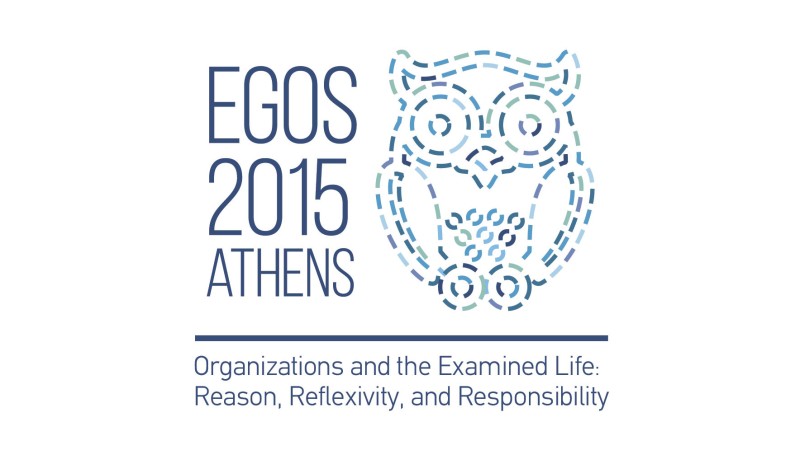Sub-theme 39: Challenging Power, Rationality and Diversity in Organizations during the Crisis: Emerging New Meanings and Learning from Ancient Greek Myths [merged with sub-themes 53 and 54]
Call for Papers
By 2015, the business world will have accumulated eight years of experience of dealing with the Global Financial
Crisis (GFC). The aftermath of this crisis, very much like the Great Recession of the 20s in the United States, is expected
to re-shape the global economy. However, to date, existing literature has not addressed the issue of what nations and organizations
can learn from previous 'sins' and reflect on them so that both scholars and practitioners can develop more efficient and
effective organizational practices without sacrificing social and individual well-being and welfare at the altar of profits.
The events after the notorious collapse of Lehman Brothers led to a domino effect which affected states at the macro-level
and at the same time organizations at the micro-level. One of the areas which has been most severely affected at both levels
is undoubtedly employment and the field of Human Resource Management (HRM). States had to introduce a number of measures to
tackle employment issues which aimed at subsequent national financial development, whereas organizations had to take a more
innovative approach towards people management in order to create and retain a sustainable competitive advantage, either through
cost or through quality, as markets became fiercer.
Existing literature has already set out to study changes
in psychological contracts (Metz et al., 2012), management responses (Zagelmeyer et al., 2012), changes in industrial systems
and collective bargaining (Patra, 2012; Voskeritsian & Kornelakis, 2011), employee involvement and participation (Marchington
& Kynighou, 2012) and other aspects of the workplace during the GFC. But there is still scope for scholars and practitioners
to become more reflective and analyze how organizational life has been and how it needs to be re-organized especially in the
light of arguments, such as those of Gibson-Graham (1996) who claims that we have reached the end of organized capitalism.
If we are to expect that economic systems will get (re)organized and will be regulated in different ways in the future, then
we are also to expect that the dynamics between the various institutions which regulate these institutions and markets will
also change. Hence, lessons learnt from this era should be explored in hindsight so we can build on this accumulated knowledge
in order to create social and organizational prosperity in the future. The practice of being reflective can enable us thus
to close the so-called gap between the rhetoric and the reality which nuisances the field of HRM to this day.
This sub-theme aims to highlight successful ways in which countries and organizations dealt with the crisis, lessons learnt
from the GFC and key opportunities and challenges which derive from it in terms of employment policies and HRM practices.
We invite theoretical, methodological and empirical contributions from a variety of perspectives.
We are interested
in expanding our future knowledge and understanding based on reflective studies on the realities in the workplace in a number
of themes, including but not limited to:
- The impact of austerity measures on employment policies and HRM during the GFC
- New approaches to tackling sovereignty debt without hindering employment and social well-being
- Implicit and 'hidden' costs of the GFC on national employment and people management
- Innovative HRM practices which organizations developed as a response to financial pressures relating to the recession
- The role of the HR function during the GFC
- New paradigms on people management approaches and Strategic HRM models based on evidence from the responses of firms to the GFC
- Emerging ways of financial and corporate organization: where do we go from here?
References
- Gibson-Graham, J.K. (1996): The End of Capitalism (As We Knew It). Oxford: Basil Blackwell.
- Marchington, M., & Kynighou, A. (2012): "The dynamics of employee involvement and participation during turbulent times." International Journal of Human Resource Management, 23 (16), 3336–3354.
- Metz, I., Carol, T., Kulik, C.T., Brown, M., & Cregan, C. (2012): "Changes in psychological contracts during the global financial crisis: the manager's perspective." The International Journal of Human Resource Management, 23 (20), 4359–4379.
- Patra, E. (2012): Social Dialogue and Collective Bargaining in Times of Crisis – The Case of Greece. Working Paper No. 38. Geneva: ILO-Dialogue.
- Voskeritsian, H., & Kornelakis, A. (2011): Institutional Change in Greek Industrial Relations in an Era of Fiscal Crisis. GreeSE Paper No. 52. Athens: Hellenic Observatory Papers on Greece and Southeast Europe.
- Zagelmeyer, S., Heckmann, M., & Kettner, A. (2012): "Management responses to the global financial crisis in Germany: adjustment mechanisms at establishment level." The International Journal of Human Resource Management, 23 (16), 3355–3374.


